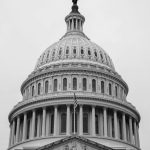In a bold move, a Virginia House of Delegates subcommittee shut down a bill aiming to protect state and national parks from intrusive data centers. The bill’s sponsor, Del. Joshua Thomas, D-Prince William, begged and pleaded in a desperate attempt to push the bill forward, but his efforts fell on deaf ears. It’s a tough break for Thomas and his district, but the committee wasn’t convinced.
The outspoken opponents of the bill made it clear that they weren’t having any of it. Kate Smiley of the Data Center Coalition pointed out that the bill unfairly targeted data centers while turning a blind eye to other industries and projects. It’s a classic case of playing favorites, and the subcommittee wasn’t buying it.
Data center bill dies in Virginia House (The Center Square) — A Virginia House of Delegates subcommittee tabled a bill Thursday that would have restricted data centers from being constructed within a half mile of state and national parks statewide. Just…https://t.co/unC6uvuVg1
— The Black Chronicle (@BlackChron) February 9, 2024
One delegate, Del. Delores Oates, R-Warren, raised concerns about the bill’s interference with local autonomy in deciding land use. The committee’s staff attorney echoed her sentiments, emphasizing the importance of letting localities make their own decisions.
But the real kicker is the decision to put the brakes on the bill until a report from the General Assembly’s Joint Legislative Audit and Review Commission (JLARC) is released in October – or maybe even December. It’s a classic case of kicking the can down the road, leaving constituents like Thomas in the lurch.
In a final blow, Del. Shelly Simonds, D-Newport News, moved to table the bill, asserting the need for more discussion and a potential compromise. Her motion carried with a resounding 7-0 vote, making it clear that this bill isn’t going anywhere for the time being.
It’s a tough day for those who were hoping for some protection against intrusive data centers, but as they say, the wheels of bureaucracy turn slowly. The fight isn’t over, but for now, it’s back to the drawing board for those looking to protect Virginia’s natural landscapes from unchecked development.




